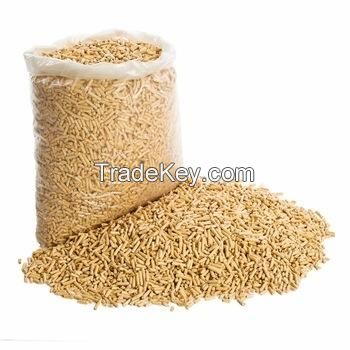"Our wood
pellets are made from 100% natural tropical wood waste without any
mixtures of any foreign materials..."
Over the years, wood pellets are widely used in the European
countries to power home heating, for industrial usage,
as
well
as for co-firing purpose in the power plants. The reason of the
popularity for wood pellets is that wood pellets are produced
without harmful additives and they are gentle to the
earth.
As a wood pellet manufacturer, our wood pellets are made from 100%
tropical woods which we believe in proper selection of feed stocks
can result in better quality production of wood pellets. Of course,
there are other factors to be taken into
consideration e.g. skills, knowledge, etc, still, preparation of
feed stocks is the most crucial step to be noted from time
to
time. We have a third party testing service to do numerous testings
on our wood pellets and the result is as per the international
standards.
Descriptions:Â Wood
pellets are a renewable resource, the fuel that is already widely
available in the world nowadays. The sawdust or wood shavings are
compressed under great pressure and forced through holes. This is a
hot process and the natural lignin in the sawdust/wood shavings
melts and binds the dust together, holding the pellet in shape and
giving it that characteristic sheen on the outside
Economic
efficiency:Â Wood pellets are extremely dense and can
be produced with a low moisture content (below 10%) that allows
them to be burned with a very high combustion efficiency. Their
high density also permits compact storage and rational transport
over long distances. Electricity generated from pellets in
converted coal plants is almost the same cost as electricity
generated from natural gas, diesel.
Environmentally
friendly:Â Wood pellets are a sustainable fuel that can
deliver a significant reduction in net carbon emissions when
compared with fossil fuels. Its production and use also bring
additional environmental and social benefits.
Using
scopes:Â Biomass fuels replace fossil fuels in power
plants, stoves, the boiler of textile, food, leather, animal
feeding,
dye industrial, and animal bedding.
